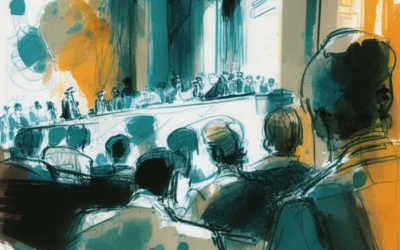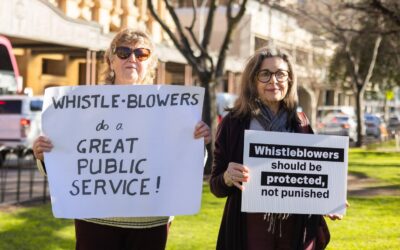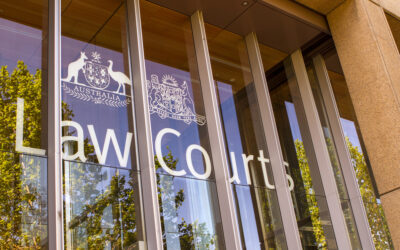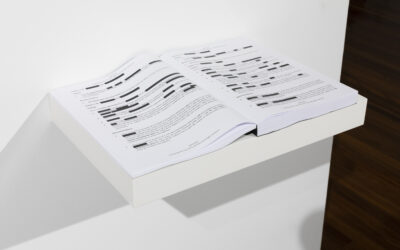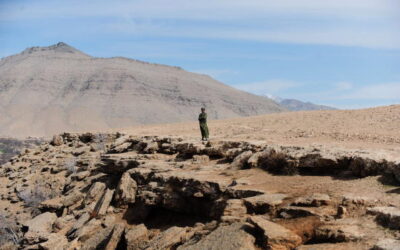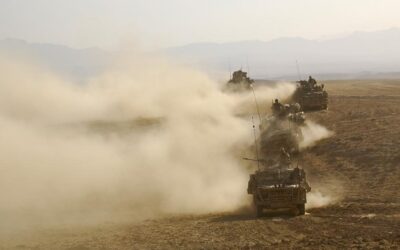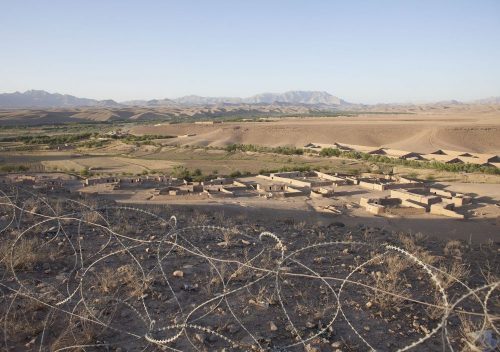Australian war crimes in Afghanistan: Questions and Answers
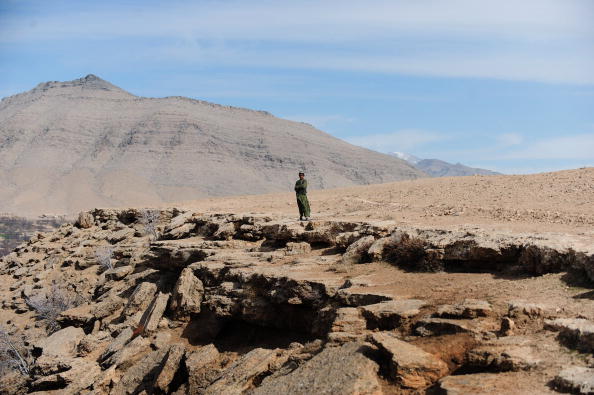
Uruzgan Province. Photo: Deshakalyan Chowdury /AFP via Getty Images
Over many years, evidence has emerged indicating that people in Afghanistan were subjected to unlawful killings and abuse by members of the Australian special forces during the war in Afghanistan between 2005 and 2016.
This Q&A gives an overview of what has happened to date, how the Australian Government has responded, and what steps still need to be taken.
Last updated: 28 November 2022
Overview
What evidence has come to light about war crimes by Australian special forces in Afghanistan?
Since 2006, evidence from various sources has come to light indicating that members of the Australian special forces committed war crimes in Afghanistan. This includes evidence from eyewitnesses and families of victims from Afghanistan, investigations by the Afghanistan Independent Human Rights Commission (AIHRC), reports by journalists and whistle-blower testimonies.
Over the years, local elders and families of victims made several complaints to the Government of the Islamic Republic of Afghanistan, AIHRC, and the International Committee of the Red Cross, which were communicated to the Australian Defence Force (ADF). The ADF generally discounted local complaints as Taliban propaganda or motivated by compensation. However, AIHRC investigations confirmed the unlawful killing of unarmed civilians by Australian forces. Testimonies from whistle-blowers and several reports from various news outlets also brought to light allegations of war crimes by Australian forces.
The Afghanistan Inquiry Report (commonly known as the Brereton Report) was published in November 2020. It too found credible evidence of unlawful killings and cruel treatment by members of the Australian special forces in Afghanistan.
The Afghanistan Inquiry Report / the Brereton Report
What is the Brereton Report?
On 19 November 2020, the Australian Defence Force released a public version of the Inspector-General of the Australian Defence Force Afghanistan Inquiry Report (commonly known as the Brereton report). The report contains the findings and recommendations of the four-year inquiry, led by Justice Paul Brereton, into allegations of war crimes committed by Australian special forces in Afghanistan in the period between 2005 and 2016. The inquiry was not a criminal investigation. Rather, it was an administrative fact-finding exercise, undertaken under the auspices of the Australian Defence Force. The purpose of the inquiry was to ascertain whether the allegations of criminal conduct by Australian forces in Afghanistan had any substance and to inform options for further action.
What did the Brereton Report find?
The Afghanistan Inquiry made 191 findings. The report concluded that there was credible information of unlawful conduct by Australian special forces in Afghanistan. The inquiry found 23 incidents in which one or more non-combatants or persons hors-de-combat (39 persons in total) were unlawfully killed by or at the direction of members of Australian special forces in circumstances which, if accepted by a jury, would amount to the war crime of murder. It also found that there was credible information regarding two further incidents in which a non-combatant or a person hors-de-combat was mistreated in circumstances which, if accepted, would constitute the war crime of cruel treatment.
The report also highlighted serious failures within the Australian special forces, which it suggests contributed to the failure to prevent, detect, and respond to the misconduct. Internal reports of operations were often embellished and sometimes completely fabricated. A further issue, the report found, was that complaints made by locals in Afghanistan were generally discounted by the Australian Defence Force.
What recommendations did the Brereton Report make?
The report makes 143 recommendations setting out actions that authorities should take in response to the misconduct committed by Australian forces in Afghanistan. The report recommends that 36 matters (involving 19 potential perpetrators and 23 incidents) should be referred for criminal investigation and prosecution. It also recommends that the Australian government pay compensation to survivors and families of victims now, rather than waiting for the establishment of criminal liability. The report makes several recommendations on administrative action and institutional reform to address systemic, organisation and cultural failings within the Australian Defence Force. It recommends e.g. that awards and honours of units and individuals within the special forces responsible for the misconduct should be reviewed and revoked, and that special forces should receive adequate education and training on the causes of war crimes and the Law of Armed Conflict.
Victims, survivors and their families
How has Australia responded to the needs and justice demands of victims to date?
In November 2020, General Angus Campbell (Chief of the Australian Defence Force) offered an apology to the people of Afghanistan for “any wrongdoing by Australian soldiers”.
In late 2020, the Australian Government established the Office of the Special Investigator (OSI) to investigate – with the Australian Federal Police – allegations of criminal conduct committed by members of the Australian Defence Force in Afghanistan between 2005 and 2016.
The Afghanistan Inquiry and the establishment of OSI are positive steps towards meeting victims’ entitlement to accountability, truth, and acknowledgement.
Australia has, however, failed to provide prompt and effective reparation to victims, as explored in more detail below.
See also:
Chief of Defence Force apology – Dari Translation
Chief of Defence Force apology – Pashtu translation
Criminal investigations and prosecutions
Will there be war crimes trials?
The Australian Federal Police and the Office of the Special Investigator are investigating possible breaches of the Laws of Armed Conflict by members of the Australian Defence Force in Afghanistan from 2005 to 2016. They can then refer cases to the Commonwealth Director of Public Prosecutions (CDPP) which will decide whether or not to pursue prosecution. The Office of the Special Investigator may pass its first brief to the CDPP in 2023.
What is the Office of the Special Investigator?
The Office of the Special Investigator (OSI) is an investigative body established in January 2021. OSI is mandated to investigate the potential criminal matters raised in the Brereton report and any new allegations of criminal offences by members of the Australian Defence Force in Afghanistan from 2005 to 2016. In November 2022, OSI confirmed that it is currently investigating all 36 matters recommended for investigation by the Brereton report, along with some additional incidents. OSI has indicated that it may pass the first complete brief of evidence to the Commonwealth Director of Public Prosecutions in the first half of 2023.
Does Australia have obligations under international law to investigate and prosecute allegations of war crimes by the Australian forces in Afghanistan?
Yes. As a signatory to the Geneva Conventions 1949 and their Additional Protocols, Australia has an international legal obligation to investigate and prosecute allegations of war crimes by the Australian forces in Afghanistan. Both treaty and customary laws of armed conflict require States to conduct independent, effective, prompt, and impartial investigations into possible war crimes by their nationals or armed forces and, where appropriate, prosecute the perpetrators.
If cases are brought to trial, what rights will/should victims have in the proceedings?
The rights of victims in criminal proceedings is an area of increased focus, both in Australia and in international criminal law practice. There is a growing awareness that disregard of victims during the criminal justice process can potentially lead to secondary victimisation and prolong the harm suffered. Domestic and international practice shows that victims’ experience of the criminal justice process can be improved without impairing the rights of the accused which are at the heart of the criminal justice system.
In Australia, the Commonwealth Director of Public Prosecution’s Victims of Crime Policy provides some guidance for prosecutors on best practice when dealing with victims of crime/s. However, the guidance is discretionary and does not guarantee legally enforceable “rights” to victims. This policy states that, on request, victims should be kept informed of the progress of the prosecution “in a timely manner” and should be advised about the various stages of the prosecution and their role as a witness. The Prosecution Policy of the Commonwealth requires that the views of victims be considered when deciding issues relating to the public interest, such as commencing or discontinuing any prosecutions. This policy also stipulates that victims should be treated with courtesy, compassion, cultural sensitivity and respect for their dignity and entitlements.
In terms of participation in the criminal proceedings, the role of victims is largely limited to giving evidence if called as a witness. In cases where an accused pleads guilty or is found guilty after trial, a victim has a right to make a victim impact statement to be considered by the court in determining the sentence.
International human rights instruments emphasise the importance of ensuring that criminal processes are responsive to the needs of victims, including by informing victims about their role as well as about the scope, timing and progress of proceedings.
ACIJ is working to ensure that the rights and interests of Afghan victims are considered in the course of potential criminal proceedings regarding Australian war crimes in Afghanistan. ACIJ emphasizes that:
- Any future legal proceedings concerning war crimes in Afghanistan will be of interest to many people in Afghanistan and in the Afghan diaspora in Australia and further afield in the context of the broader process of reckoning with the conflict period. Updates on the progress of investigations and prosecutions should be made available in English, Dari and Pashto. Where investigations result in trials, where possible, court proceedings should be live-streamed to allow interested parties to observe. Summaries of relevant trials and judgments should be made available to make the proceedings more accessible to victim communities.
- Victims and their families should be kept informed of their rights to participate in proceedings.
- Witness Assistance Services should be available to victims of international crimes including war crimes. The need for witnesses to be given a clear understanding of what their participation will entail is particularly important in cases involving international crimes, where victims and witnesses are more likely to be unfamiliar with the legal processes of the system they are engaging in.
- Considerable efforts have been undertaken to inform Australian witnesses and ADF veterans of their entitlements to counselling and support services in the context of the Afghanistan Inquiry. This should also be extended to Afghan witnesses and victims.
Victims also have a right to reparations, which is further discussed below.
What will happen if Australia fails to prosecute and ensure accountability for the alleged crimes?
Victims: Compensation and other forms of redress
What recommendations did the Brereton report make on compensation?
The Brereton report recommended that Australia should compensate families of victims swiftly, without waiting for the establishment of criminal liability. The report emphasized that prompt compensation is important to restore Australia’s reputation and “simply the morally right thing to do”.
ACIJ notes that compensation should not be limited to those cases identified in the Brereton report. Compensation should also be provided for similar cases that continue to come light following the publication of the report.
Has Australia made compensation payments to victims?
No.
In July 2021, the Department of Defence set a deadline of “end-2021” for the Australian Government to release its compensation plan. However, the then-Government missed this deadline. The new Government has yet to release any information about its plans for compensation and other forms of redress.
What other types of redress are important?
Compensation is not the only kind of redress that is important to victims. Survivors, victims and their relatives in Uruzgan have indicated that they are also interested in truth and acknowledgment. They also want to be consulted on the form of reparation provided.
International law provides victims of human rights violations the right to adequate, effective, and prompt reparations. This includes compensation, rehabilitation, restitution, satisfaction, and guarantees of non-repetition. Rehabilitation includes medical and psychological care as well as legal and social services. Restitution focuses on restoring the victim to the original situation before the violation occurred, such as restoration of the damaged property. Satisfaction includes a wide range of measures, such as truth-telling, public apology, acknowledgement and acceptance of responsibility, judicial and administrative sanctions, and commemorations and tributes to the victims. Guarantees of non-repetition focus on preventative measures such as providing education and training to members of the military and security forces on the rules of war.
See also:
ACIJ and civil society groups from Afghanistan call for full and effective reparation
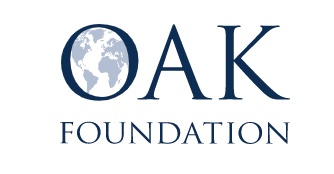
Latest on Afghanistan
MEDIA RELEASE: Launch of Policy Paper ‘Challenging Impunity: Why Australia Needs a Permanent, Specialised International Crimes Unit’
28 September 2023 The Australian Centre for International Justice has launched the landmark policy paper, ‘Challenging Impunity: Why Australia Needs a Permanent, Specialised International’ Crimes Unit’. The paper explores the rise in domestic accountability processes...
Joint Media Release: Civil society, journalists, unions, lawyers and ex-judges call for an end to whistleblower prosecutions
12 September 2023 Joint Media Release: Civil society, journalists, unions, lawyers and ex-judges call for an end to whistleblower prosecutions More than 70 organisations and individuals have signed a letter to the Australian government, published in newspapers today,...
Joint Media Release: Truth triumphs in Ben Roberts-Smith war crimes defamation verdict
1 June 2023 Joint Press Release: Truth triumphs in Ben Roberts-Smith war crimes defamation verdict Today, the Federal Court of Australia delivered its judgment in the defamation case brought by former SAS corporal Ben Roberts-Smith against The Age, Sydney Morning...
Joint press release: First war crimes charge relating to conduct of Australian special forces in Afghanistan
21 March 2023 Joint Press Release: Human rights groups welcome the first war crimes charge relating to conduct of Australian special forces in Afghanistan The Australian Centre for International Justice (ACIJ) and the Afghanistan Human Rights and Democracy...
Reckoning with the legacy of war crimes in Afghanistan: Discussion – 28 January 2023
Discussion: Reckoning with the legacy of war crimes in Afghanistan Melbourne, Saturday 28 January 2023 In recent years, much information has come to light about human rights abuses by members of Australian special forces in Afghanistan. The Brereton Report,...
Report: Assessing Australia’s response to the Afghanistan Inquiry
29 November 2022 Two years after the release of the Afghanistan Inquiry’s Report on war crimes by Australian special forces in Afghanistan, the Australian Centre for International Justice (ACIJ) has assessed Australia’s response to the report’s findings and...
Joint Statement: Prosecution of war crimes whistleblower David McBride must be dropped
26 October 2022 Prosecution of war crimes whistleblower David McBride must be dropped The Australian Centre for International Justice and the Human Rights Law Centre are calling for an end to the unjust prosecution of war crimes whistleblower David McBride, as his...
Statement: First arrest concerning allegations of war crimes by special forces in Afghanistan for obstruction and harm to investigator
27 April 2022 Statement: First arrest concerning allegations of war crimes by special forces in Afghanistan for obstruction and harm to investigator The Australian Centre for International Justice (ACIJ) welcomes news of the arrest of an individual arising out of...
Media Release: Senate Afghanistan inquiry fails to address war crimes
6 April 2022 Australia's Senate Committee on Foreign Affairs, Defence and Trade References this week released the final report of its inquiry into Australia’s engagement in Afghanistan. The inquiry was tasked with examining Australia's twenty-year military, diplomatic...
The Australian Centre for International Justice fights to hold accountable those responsible for the most serious international crimes. It continues to be an enormous challenge.
We work with survivors of torture, sexual violence, genocide and war to research and develop strategies to fight for justice.
We are Australia’s first specialist legal centre providing strategic advice and representation to people seeking justice and accountability.
We take action against the impunity of those responsible for committing atrocity crimes. We all benefit by supporting communities in Australia and around the world access justice.
We need your support to fight for justice.
Join us to advance international justice in Australia and make a tax-deductible donation to support our work and help us push our projects and litigation.
